DCI Part 2: we can learn from this musical and marketing performance powerhouse
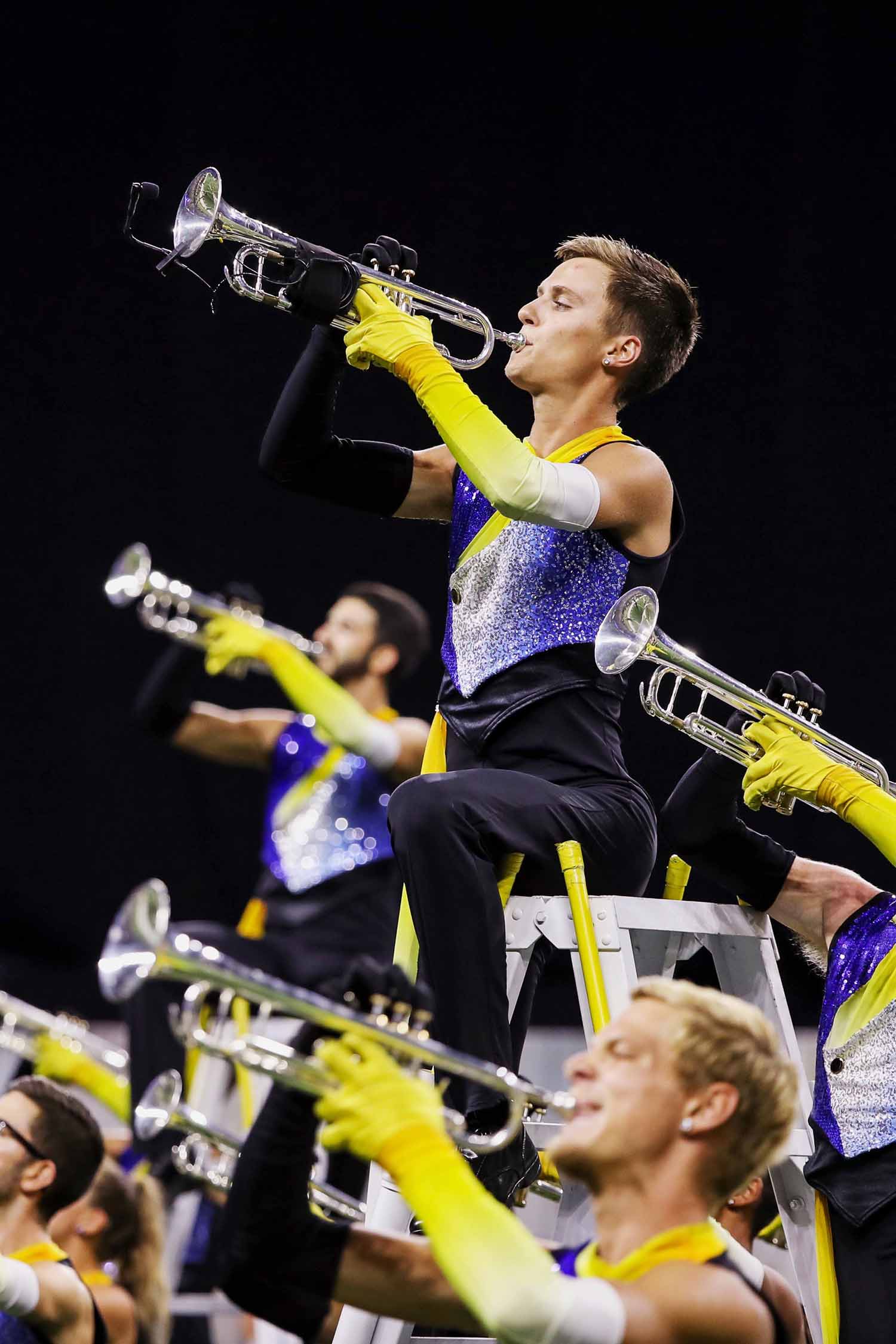
Before missing the opportunity to learn from the success of Drum Corps International (DCI), you might want to have a serious and objective look around.
Smaller audiences. Constantly performing only for friends and family and an increasingly older audience. Attrition in both audience and participants on a level never before seen. A dearth of new pipe bands coming onto the scene. More and more players giving priority to other hobbies and interests.
To be sure, we all love what we do. We love the familiar and the upholding of traditions. There’s much to be said for musical nostalgia providing warmth to the heart and soul.
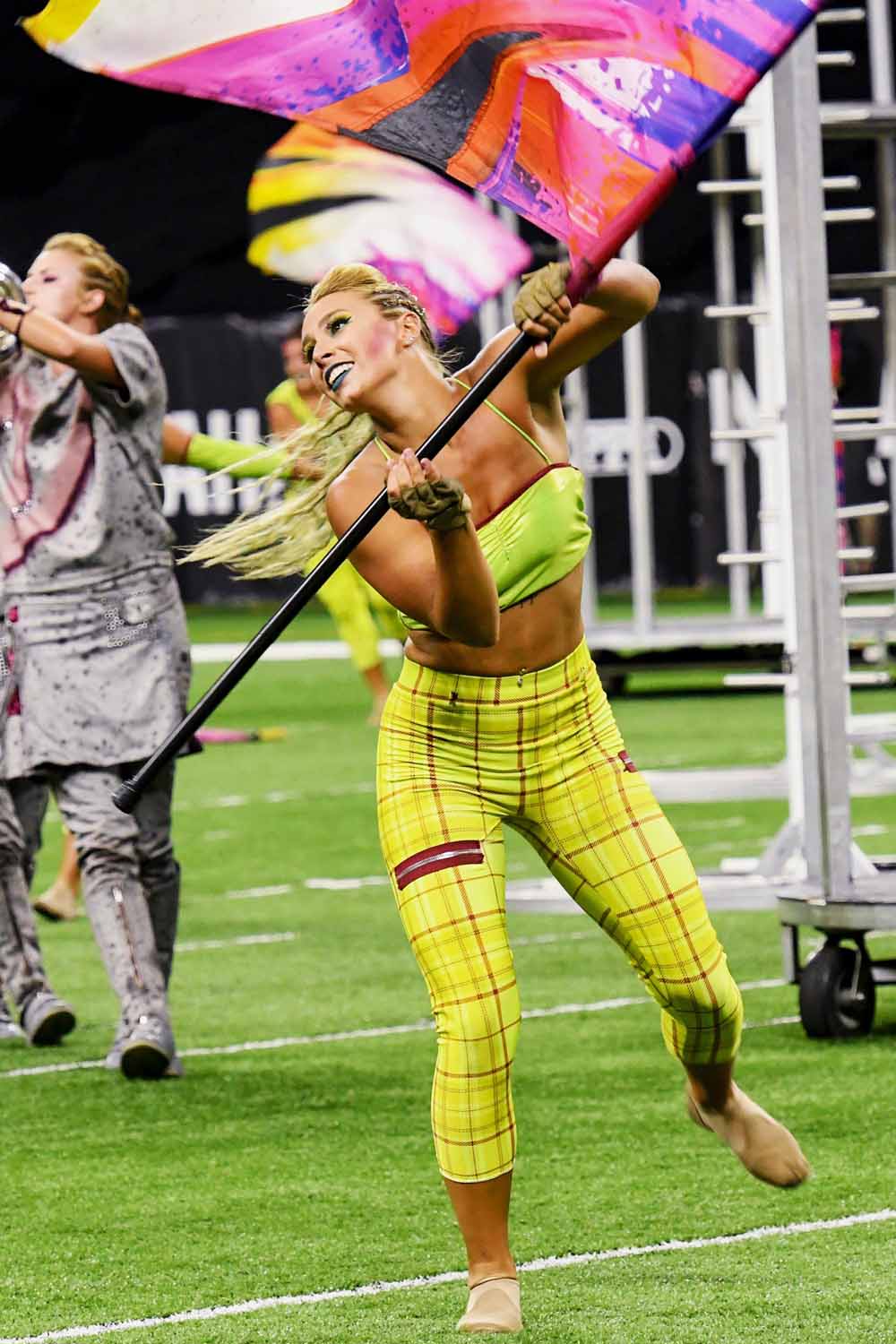
But if we want to safeguard the future, we’d be wise to keep our eyes, ears and minds open to the success of others and possibly take inspiration on what might be possible.
We continue, then, with our exclusive discussion with John Phillips, Judging Administrator with Drum Corps International, “Marching Music’s Major League.” It’s an attempt to enlighten and learn, to consider new possibilities from an organization that, to a great extent, was faced with many of the same challenges we see in the piping, drumming and pipe band world.
Phillips is an excellent spokesperson for DCI. Unlike many of our own associations, his organization understands the value of good media relations. We learned more in an hour from him than we have in the last two decades from the RSPBA.
Consider that DCI is only in its fiftieth year. Before 1972, drum and bugle corps events and competitions were generally haphazard. It took a long-range vision to recognize the potential.
According to John Phillips, judges used to look for errors, but have since evolved through training to a “rewarding achievement” approach.
To determine the prizes, eight categories (general effect, music and visual analysis, visual proficiency, colour guard, brass, and ensemble and field percussion) with one or two assigned judges, totalling 10 adjudicators.
Here’s a summary of how DCI judging works.
According to John Phillips, judges used to look for errors but have since evolved through training to a “rewarding achievement” approach.
Many years ago, judges would write comments on scoresheets on clipboards through all kinds of weather. They quickly embraced technology to go with spoken recorded judging through the “Competition Suite” cloud-based software application. Right after a performance, drum corps leaders can listen to feedback on their play via the app. Instead of administrators punching numbers into spreadsheets, a press of a button at the end of the contest brings up foolproof results.
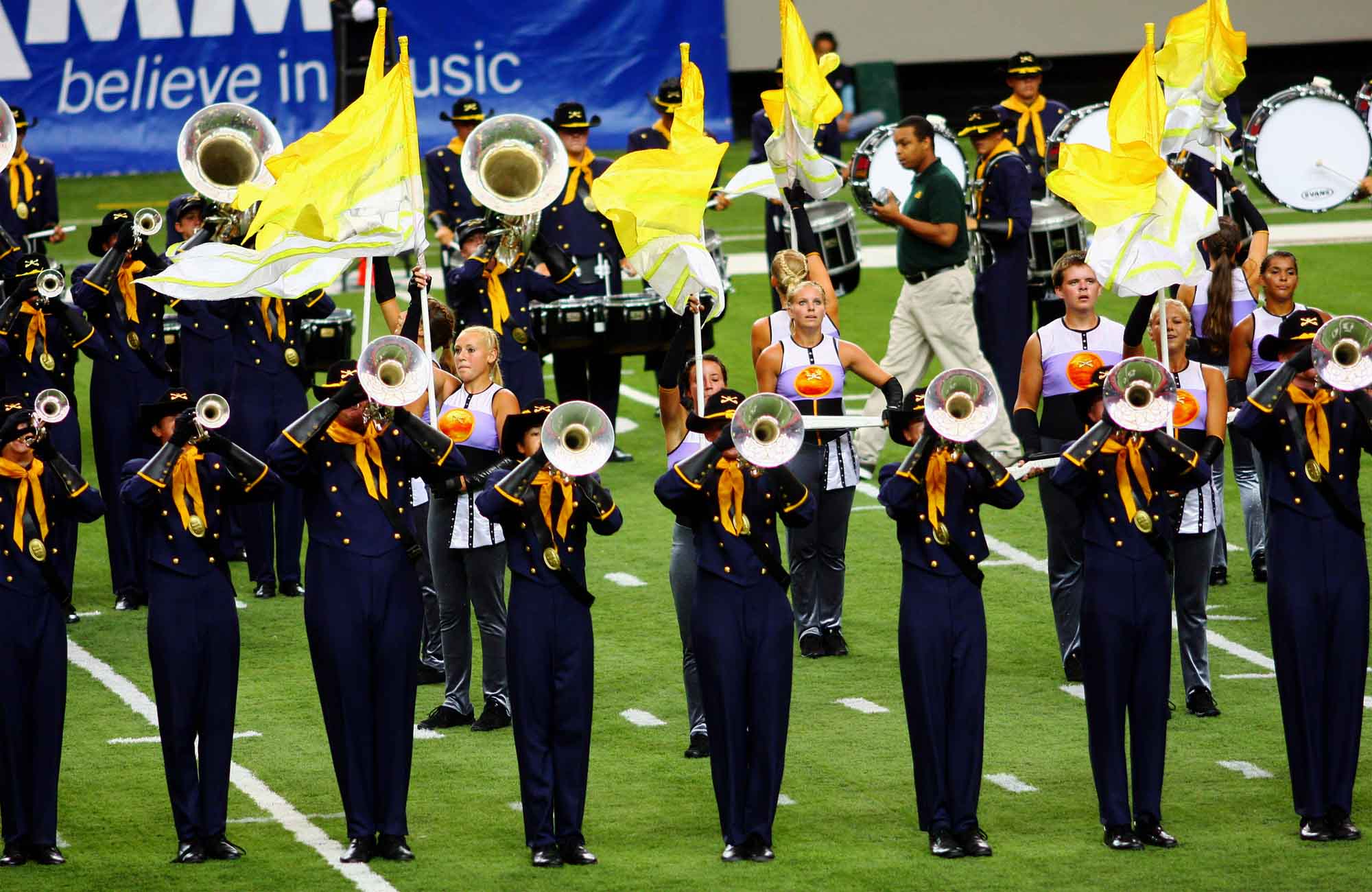
No risk of muddling by stressed-out scrutineers and volunteers trying to do their best with pen and paper and iffy power supplies in remote locations.
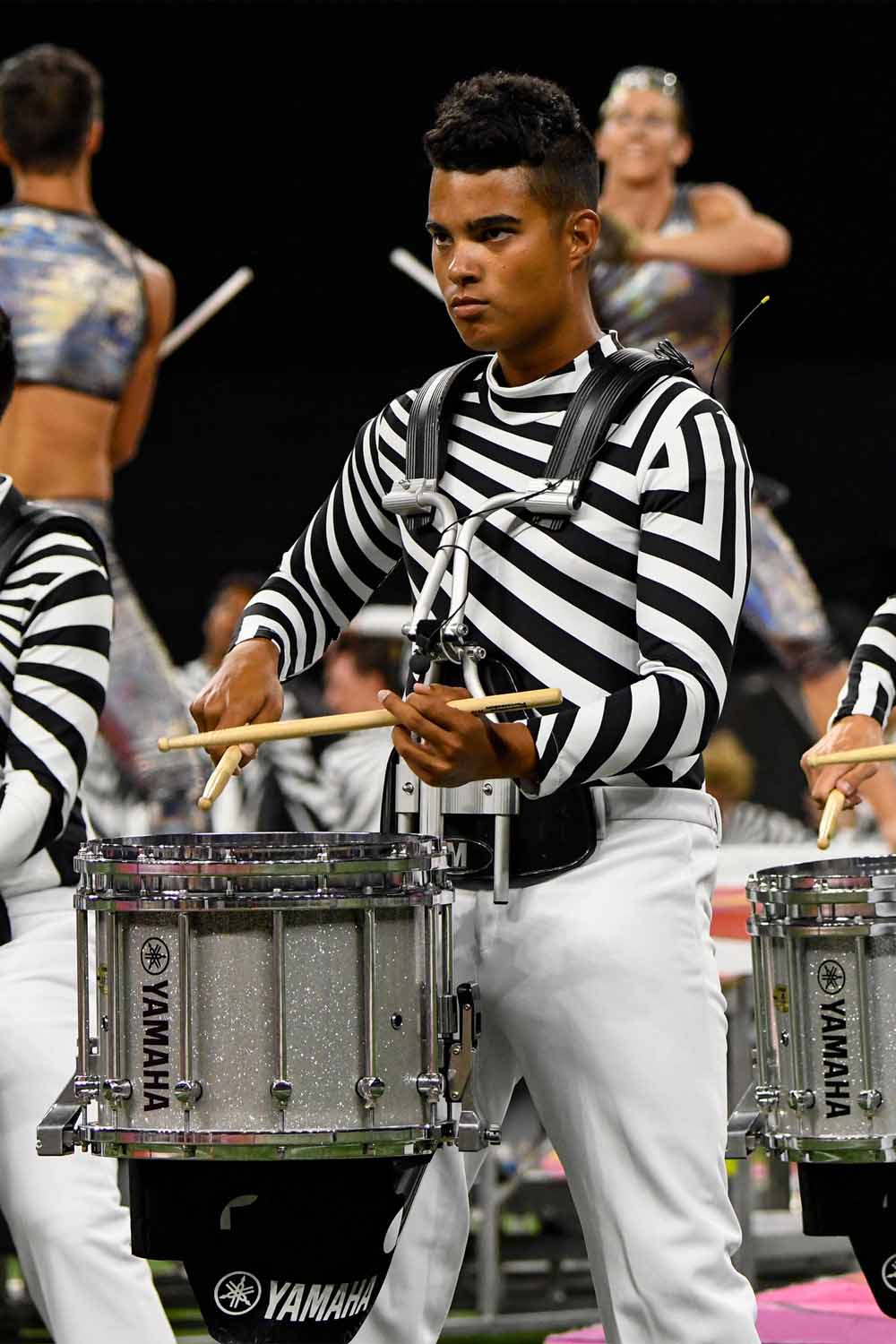
Unlike the pipe band world that consistently assumes there’s “no money in it,” allowing others to collect the performing and neighboring rights royalties, DCI is conscious and respectful of copyright. They take great pains to properly and legally license and report music performed, copied and broadcast so that those who earned the royalties actually receive them.
Much like today’s pipe band medleys, the result is a balance between the recognizable and the brand new. The big difference is the respect for rights-holders – not to mention abiding by copyright law.
Rather than adhere rigidly to traditional musical forms, there’s an anything goes approach to DCI music. They encourage creativity, and even opened up to keyboards and synthesizers. The only instruments that are not permitted are woodwinds.
So, no analog bagpipes, though conceivably there could be room for Murray Blair’s Digital Chanter.
When it comes to judging, teachers are not permitted to assess drums corps they teach. “You cannot have any alliance or instructional experience with any of the performing groups,” Phillips stressed. Only after several years of no involvement with a drum corps are you allowed to adjudicate.
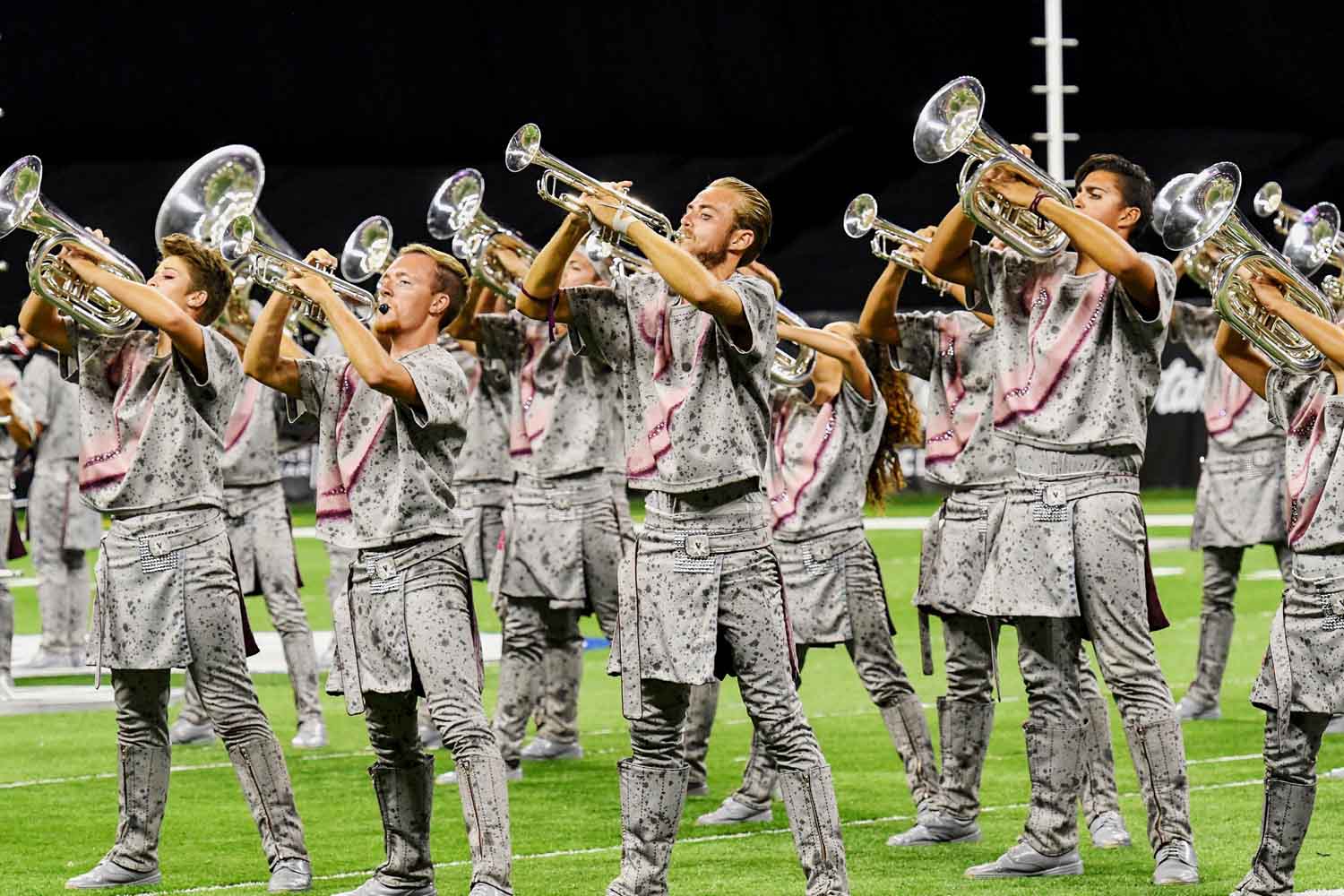
While strictly speaking there’s nothing that says any of the 130 DCI judges who are also aligned with an instrument or uniform manufacturer can’t judge, judges and competitors must adhere to a strict code of conduct. According to Phillips, any improprieties would be dealt with swiftly.
Here’s a video about DCI’s fiftieth anniversary year:
While no one is suggesting we abandon our traditional wool and tartan in favour of Vegas-like show wear, or suggest that pipe bands should choreograph performances (although, don’t tenor sections do that to some extent now?), we might be able to glean a different attitude, one that welcomes change rather than constantly closing ranks in a circle with our backs to whatever audience might be present. Before we snicker at DCI and all of their pageantry and showmanship, remember that they, too, put musical excellence first.
We hope you enjoy and learn from our conversation with Drum Corps International’s John Phillips.
Our thanks to John Phillips for taking the time to speak with us, and to Drum Corps International for recognizing the value of sharing information.


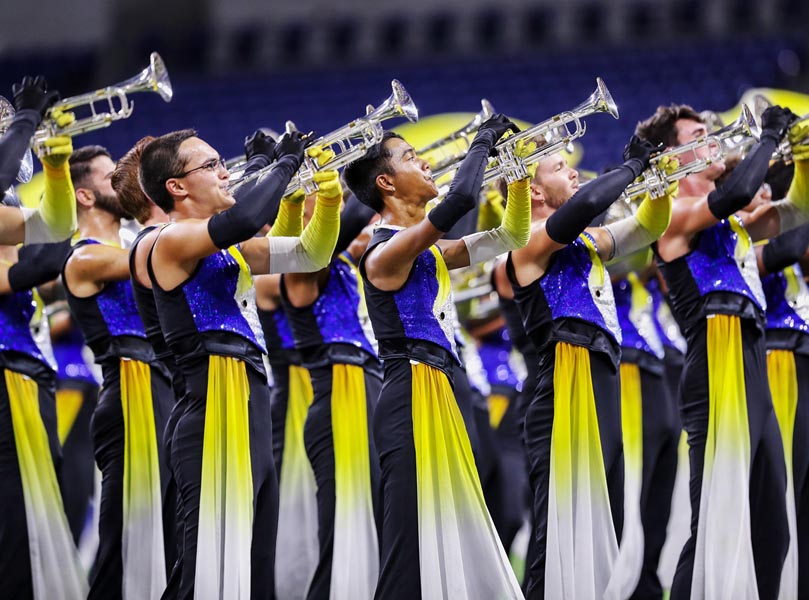
NO COMMENTS YET